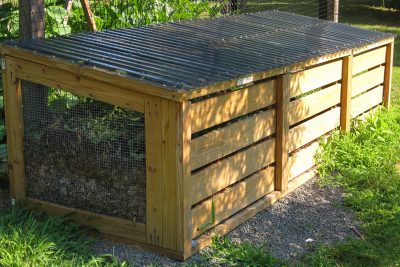August Newsletter Cover
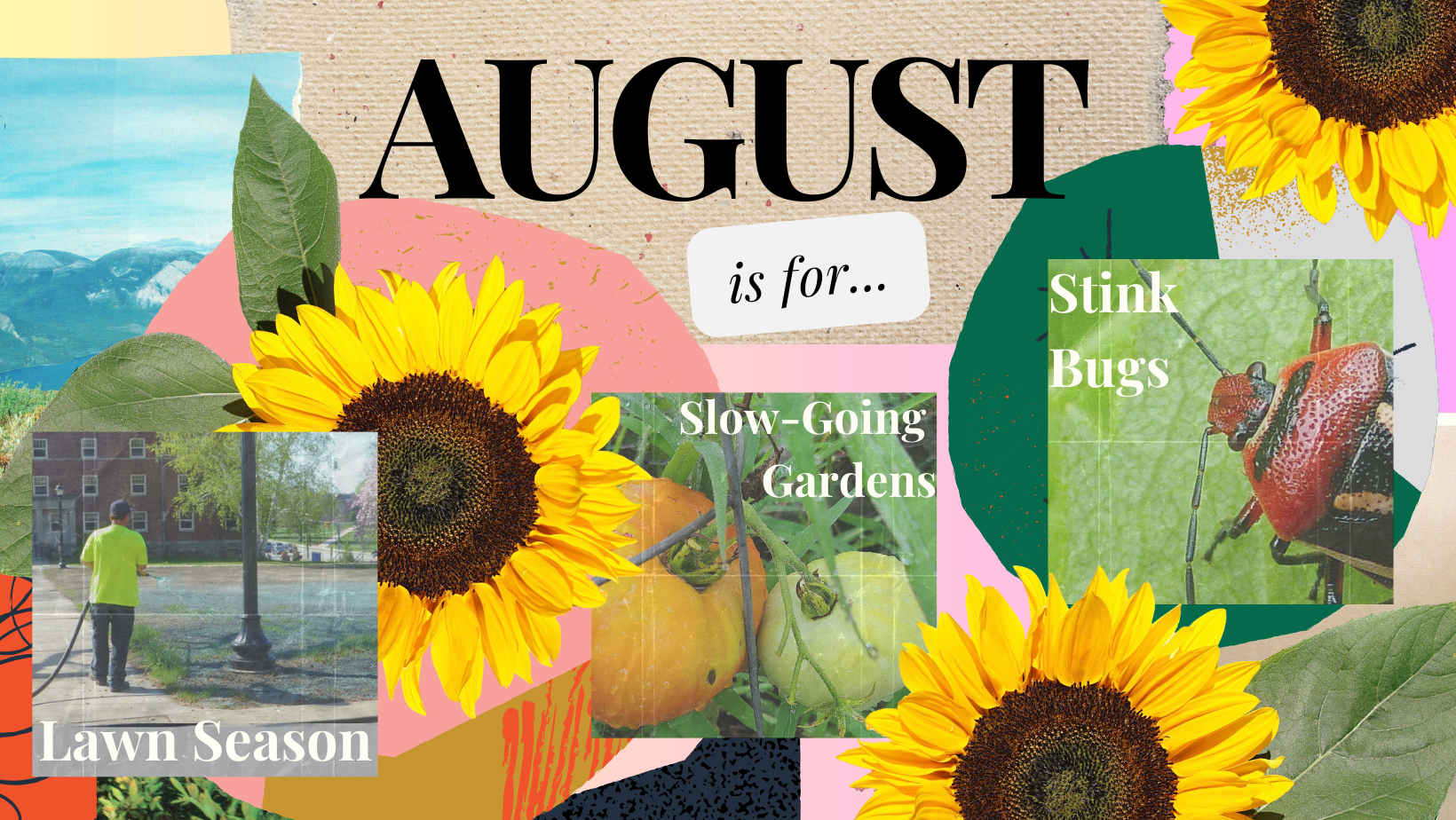
"A late summer garden has a tranquility found no other time of year."
- William F. Longgood
Slow-Growing Gardens
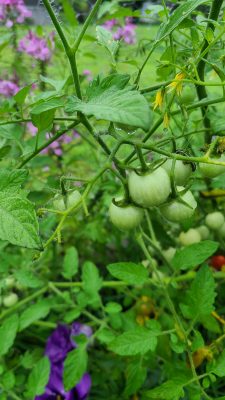
Does your garden feel a little behind this year? Have you noticed your tomatoes seem to be taking forever and a day to turn red? You're not alone!
A big contributor is the weather. When temperatures exceed 85 degrees, for example, tomatoes won't turn red until the temperature comes down again.
Other vegetables will drop flowers and even pause their water uptake. Be careful not to overwater during these times - always check your soil!
Sometimes, pollinators will reduce their activity in excessive heat, further delaying the process.
We've had a handful of heatwaves this season that have contributed to the slowing of vegetable development. Be patient!
Preparing for Lawn Season
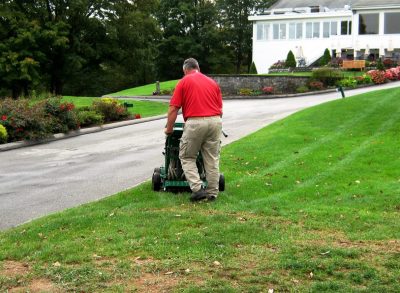
It's time to start thinking turf! The ideal time to seed your lawn is between August 15th and September 15th. You want to give your lawns enough time to establish new roots before the cold sets in. Finding the right kind of turf for your location can be a big help in establishing a robust lawn. Consider light, soil, and water conditions when selecting a turf species.
Lawns should not be fertilized after July 1st. Continue to monitor for watering needs and only mow when there is adequate water available.
If you have not done so, early August would be a good time to get a soil test to help prepare for any lawn establishments or renovations!
See our list of resources on establishment, rennovation and selection.
Selecting an Appropriate Grass for Your Lawn
Understanding Grass Seed Labels
Rare Stink Bug: Perillus excaptus
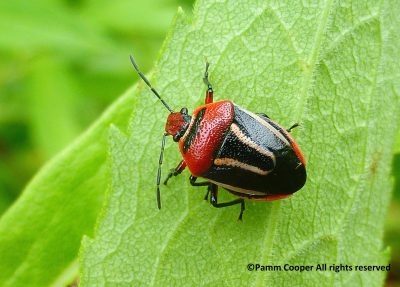
Two Perillus excaptus stinkbugs, considered rare and unrecorded here in Connecticut, were discovered this year by one of our staff, Pamm Cooper. One of them was found in Vernon in a wildlife management area while on a Bug Week hunt with Jacqueline Crepeau, a master gardener intern. This predatory stinkbug is associated with certain goldenrods which have particular leaf beetles feeding on them. This Perillus spp. stink bug eats the larvae of the goldenrod beetle. According to a resource, P. excaptus is rare in all its locations and its life history is unknown.
Native Plant Highlight: Yellow Fringed Orchid
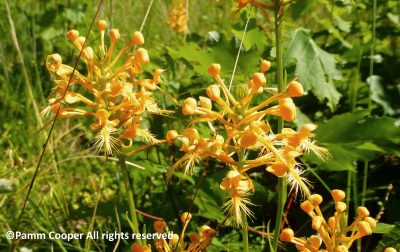
The yellow fringed orchid Platanthera ciliaris is on the CT DEEP endangered plant list. This rare plant has a showy raceme of fringed lipped flowers that can be yellow to orange in color. It likes sunny, wet acidic soils including seeps, bogs, wet meadows and sometimes roadsides. It blooms here from early July - August. It is pollinated by certain bees, moths and butterflies, especially by the swallowtails.
Vegetable Gardening Resources
During the growing season, UConn Extension publishes a regular pest alert. Additionally, the New England Vegetable Management Guide offers a lot of information about specific vegetable crops.
While the target audience for these publications is usually commercial growers, home gardeners can learn a lot from these materials including identification and management of common pests in your veggie gardens!
If you ever need confirmation on an ID or have additional questions about what you read in these reports, please do not hesitate to reach out to us at the Home & Garden Education Center! We're happy to help your gardens thrive.
UConn Fruit Update
The UConn Fruit Program publishes a fruit update, very similar to the IPM Vegetable Pest Alert. If you keep fruit trees, this may be a valuable resource for you! If you ever need help understanding how to apply these principles to your own home garden, let us know!
Knowledge to Grow On
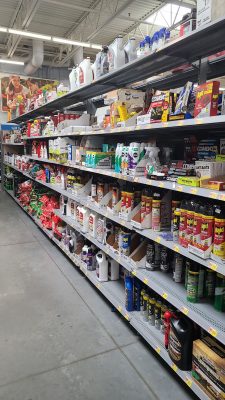
Read our Ladybug blogs written weekly:
What does A PB&J have to do with Garden Pests?
Why Houseplants Fail
I Used to Like Jack in the Pulpits!
Upcoming Events and Things to Do
- August is the start of Fair Season! See the Calendar of Fairs in Connecticut
- Sunflowers will start to bloom this month! Try the Connecticut Sunflower Maze or one of these many Sunflower Events Around the State
- Summer is a great time for music festivals and various summer concert series. See what's happening this summer or check with your town for events!
- See the Plainville Fire Company's Hot Air Balloon Festival August 23rd & 24th
- Check out the Made in Connecticut Expo August 10th & 11th
Educational Opportunities & Workshops
- Plant Science Day, August 7th, Hamden, CT
- Summer Tree ID for Beginners - August 10th, Hampton, CT
- Papermaking Class, August 22nd, Hampton CT
Upcoming UConn Educational Events
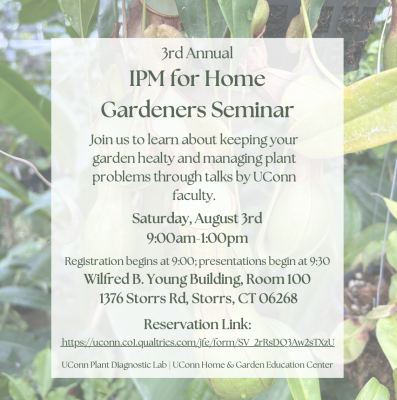
3rd Annual IPM for Home Gardeners Seminar
Saturday, August 3rd
9:00 AM - 1:00 PM
W.B. Young Building Room 100
1376 Storrs Rd
Storrs, CT 06268
Cost: Free
Register at: s.uconn.edu/ipm_2024
Event Speakers:
- Dr. Nick Goltz, Uconn Plant Diagnostic Laboratory - Plant Disease Updates
- Emily Leahy, Uconn Plant Diagnostic Laboratory - Plant Disease Trends in a Changing Climate
- Pamm Cooper, Uconn Home & Garden Education Center - Basic Pest Control: Know the Enemy
- Heather Zidack, UConn Home & Garden Education Center - Being an IPM Detective
- Dr. Srikanth Kodati, UConn Extension Pesticide Safety Specalist - Math of Pesticide Application & Reading Pesticide Labels
- Dawn Pettinelli, Uconn Soil Nutrient Analysis Laboratory - Fertilizers 101
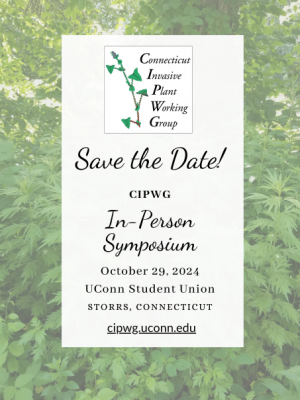
CT Invasive Plant Working Group
In-Person Symposium
October 29th, 2024
UConn Student Union
Storrs, CT
2024 UConn Master Composter Program
Interested in learning more about composting and sharing your knowledge with others? UConn will be holding its Master Composter program this September. The Master Composter program is a train the trainer program where participants will learn about the various aspects of composted and then donate a minimum of 20 hours volunteer time engaging in outreach projects that may include activities such as tabling at events, giving presentations or working with schools or community gardens. When outreach goals have been met, participants will be certified as Master Composters and receive a certificate of completion. There is a registration fee.
The 2024 program will be a hybrid program with two in-person Saturday sessions, September 14 & 28 along with two evening online sessions, September 19 & 27 via WebEx. The two Saturday classes will be held at the Middlesex County Extension Center, 1066 Saybrook Rd, Haddam, CT 06438. It is anticipated that two field trips will be offered this fall, also on weekends
If interested, please email ladybug@uconn.edu or call (877) 486-6271 and you will be notified when the program is finalized and registration is open!
Feed The Earth……Compost!
August Gardening Tips
- Water plants deeply once or twice a week depending on the heat and humidity.
- Remove old plants that have stopped producing to eliminate a shelter for insects and disease organisms. Replant sites with chard, quick maturing beans or cucumbers, leafy greens etc.
- Keep an
 eye out for black rot on grapes. Black rot results in mummified grapes- Infected pruned tissues and mummified berries should be removed before new growth begins in the spring. Sanitation is a key to preventing this disease of grapes.
eye out for black rot on grapes. Black rot results in mummified grapes- Infected pruned tissues and mummified berries should be removed before new growth begins in the spring. Sanitation is a key to preventing this disease of grapes.
- To reduce the number of pests on your fruit trees for the coming year practice good sanitation by removing and destroying all fallen fruit. Do not compost it.
- Reseeding the lawn in late August gives the new grass two growing periods (fall and spring) before the heat of summer. Be sure to keep the seed moist until germination.
- Noticing plants that wilt during the day and recover at night in spite of adequate water in the soil can be a sign of verticillium wilt. Watch tomato, pepper and eggplant closely for this type of flagging.
- Do not add weeds with mature seed heads to the compost pile. Many weed seeds can remain viable and germinate next year when the compost is used.
- August is a great time to order peony roots and spring bulbs for September planting.
- Fertilize container plantings and hanging baskets if they look yellow with a ½ strength dose of a balanced liquid fertilizer
- The best time to gather herbs and flowers for drying and preserving is during the midmorning hours, just after the dew has dried but before the sun causes them to wilt.
This Month’s Newsletter Contributors:
Pamm Cooper, Dr. Nick Goltz, Dawn Pettinelli, Marie Woodward, Heather Zidack


